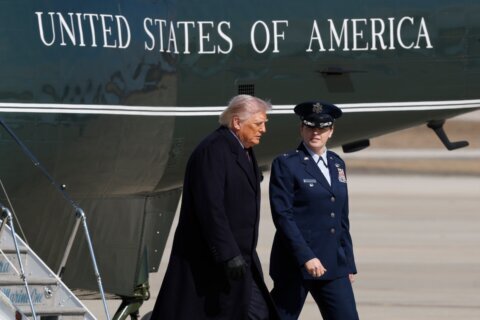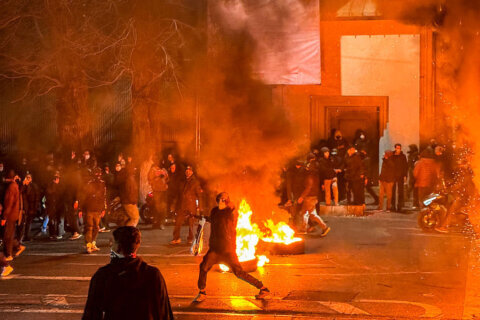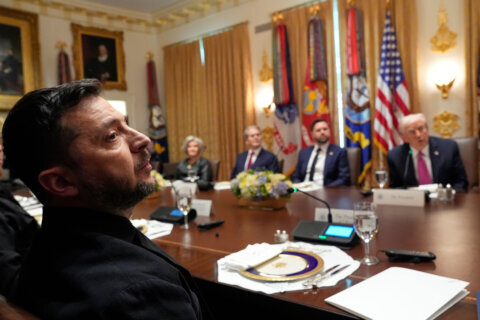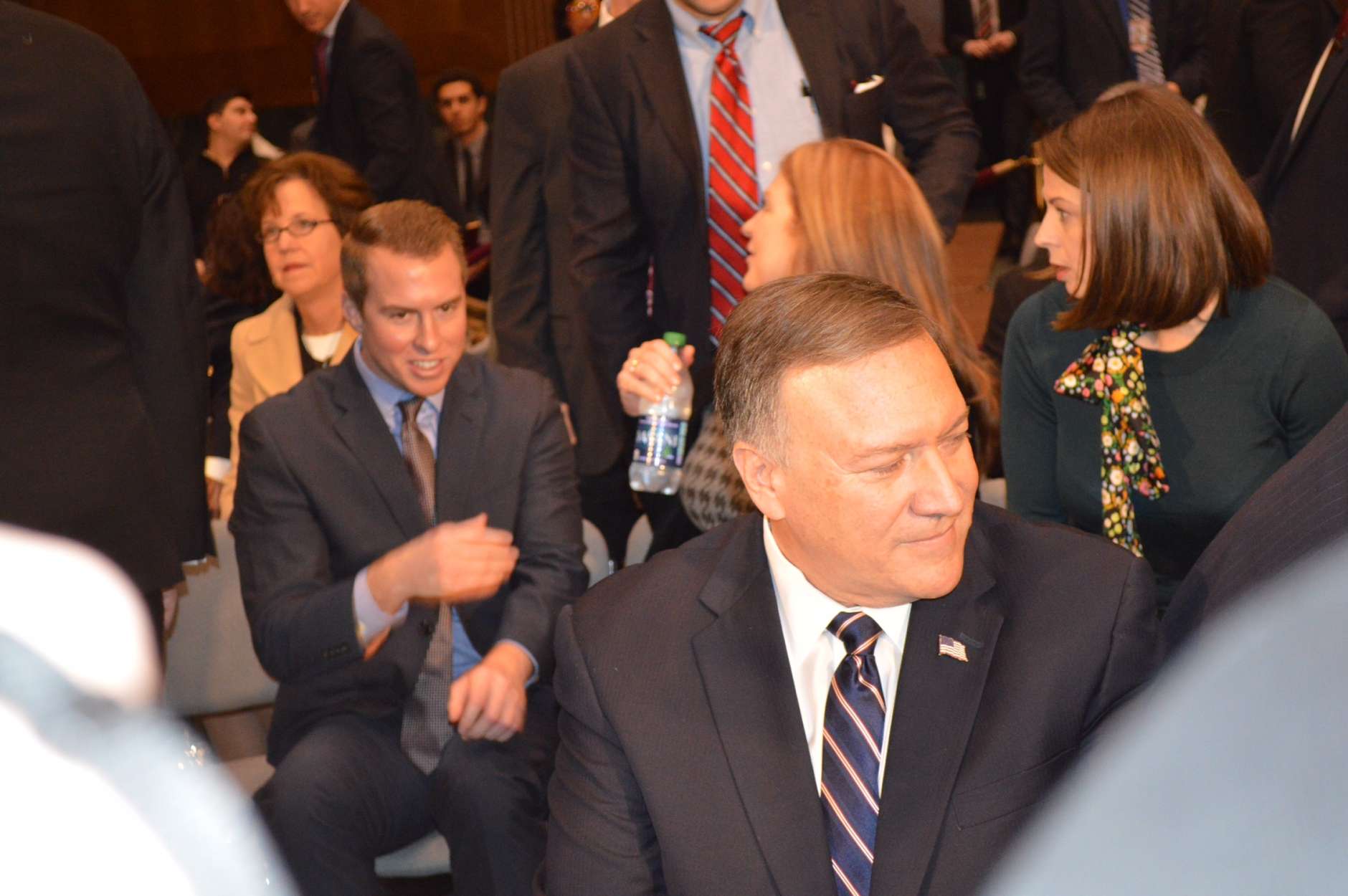
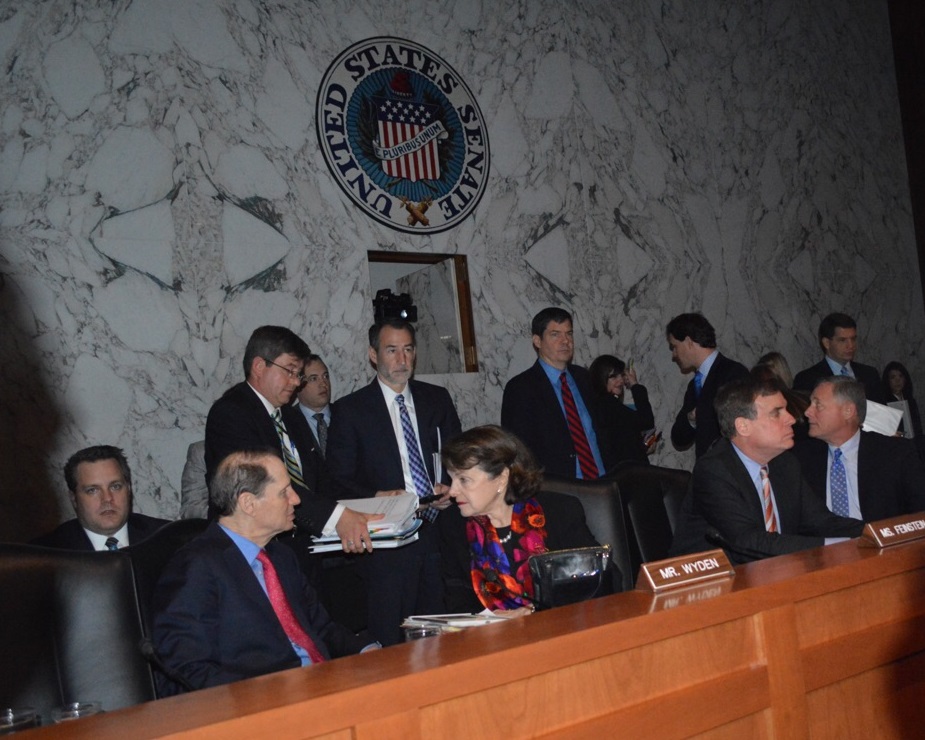
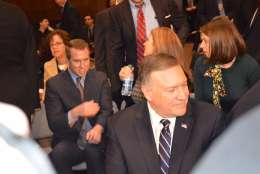
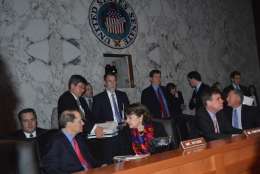
WASHINGTON — Thirteen minutes and 58 seconds into the Senate Intelligence Committee hearing to question Kansas Congressman Mike Pompeo’s suitability to lead the Central Intelligence Agency, an eerie and inexplicable moment took place.
Virginia Sen. Mark Warner, vice chairman of the committee, was concluding his opening remarks.
“Finally as you know,” he said, “Chairman [Richard] Burr and I have committed to conduct a review. All the intelligence supporting the Intelligence Committee’s assessment, that Russia, at the direction …”
At that moment, the lights in the Hart Senate Office Building hearing room went dark. The microphones fell silent. There was complete quiet, except for the buzzing of the audience, marveling at the coincidence that the electricity in the hearing room was lost just as Warner was about to question Pompeo about Russia’s cyber meddling in U.S. affairs.
After about a half-hour delay and a change of venue to the Dirksen Senate Office Building, the hearing resumed.
Russia was still top of mind. Warner asked, “Do you accept the conclusions of the IC [intelligence community] regarding Russia’s active measures?”
Pompeo responded: “Senator, I do. I’ve had one briefing. I attended the meeting which the present-elect was briefed. And everything I’ve seen suggests to me that the report has an analytical product that is sound.”
Warner then asked, “Do you pledge to cooperate with the SSIC’s [Senate Select Committee on Intelligence] Russia inquiry and to provide and make possible all necessary materials and access to personnel, if needed?”
Pompeo enthusiastically confirmed he would, responding, “Senator, I do.”
The rest of the hearing followed suit with polite, respectful questions laced with concern about how Pompeo would lead the agency — especially in light of previous doubts that President-elect Donald Trump expressed about the intelligence community assessment and report, which concluded that Russian meddling and cyber activity in U.S. affairs was directed by top Russian officials.
Pompeo, responding to a question by Sen. Dianne Feinstein, D-California, said, “With respect to this report, in particular, it’s pretty clear about what took place here, and about Russian involvement in efforts to hack information and to have an impact on American democracy. I’m very clear-eyed about what that intelligence report says.”
Pompeo told the committee that as more facts are developed regarding Russian cyber and espionage efforts, “I will relay those not only to the president, but the team around him, and you also, so that we all can have a robust discussion about how to take on what is an enormous threat.”
He also acknowledged that the Russian government information warfare campaign, called “Active Measures,” was “an aggressive action taken by the senior leadership inside Russia and [that] America has an obligation — and the CIA has a part of that obligation — to protect that information.”
Senators were also concerned about Trump’s previous remarks regarding the possible re-instatement of enhanced interrogation methods such as waterboarding — an area that Pompeo would also be involved in as CIA director.
Feinstein asked, “If you were ordered by the president to restart the CIA use of the enhanced interrogation methods that fall outside of the Army Field Manual, would you comply?”
“Senator, absolutely not,” said Pompeo. He added, “I can’t imagine that I would be asked that by the president. But I’m very clear: I voted for the change that put the Army Field Manual in place as a member of Congress. I understand that law.”
Asked what he thought were the key threats to the U.S., Pompeo, reluctant to rank them, said terrorist acts ordered or inspired by ISIL, al Qaida and other extremist groups are of great concern. North Korea, China and Russia were high on his list as well because of their nuclear capabilities.
When pressed about which single individual might top his list of threats, he declined to name one, saying, “There are too many to single out one.”


